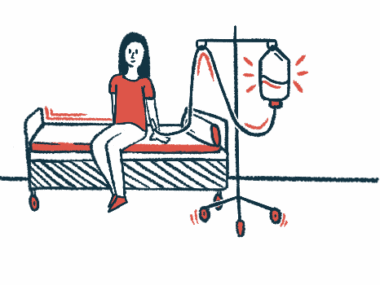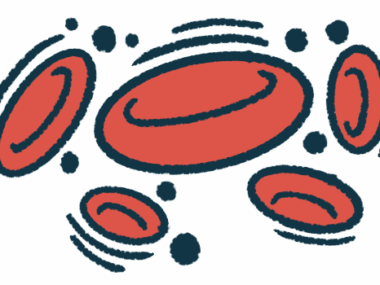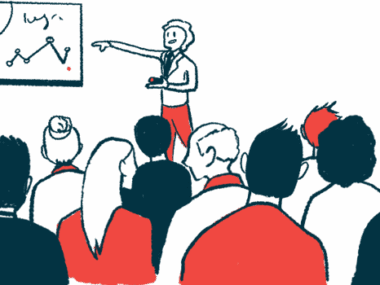Enjaymo not cost-effective at current price: US analysis
80% lower price or time-limited treatment to meet cost-effectiveness thresholds
Written by |

Enjaymo (sutimlimab), the only approved treatment for cold agglutinin disease (CAD), needs to be about 80% cheaper or be used for a maximum limit of 1.5 years to meet conventional thresholds for cost-effectiveness in the U.S.
That’s according to a cost-effectiveness analysis that was based on data from the Phase 3 CARDINAL clinical trial (NCT03347396) that supported the therapy’s approval for CAD patients with a recent history of blood transfusions.
“Despite demonstrating clinical benefit in phase 3 trials, [Enjaymo] remains a costly biologic agent, especially if administered over an indefinite period in CAD, calling for careful consideration of its value in the care of patients living with primary CAD,” researchers wrote.
The study, “Cost-effectiveness of sutimlimab in cold agglutinin disease,” was published in the American Journal of Hematology. It was conducted by a team led by researchers at Yale School of Medicine, in New Haven, Connecticut.
CAD occurs when the immune system mistakenly attacks red blood cells at low temperatures, leading to their destruction, a process known as hemolysis. A loss of red blood cells, which carry oxygen through the bloodstream, results in anemia, which deprives tissues of oxygen. This can cause symptoms such as pale skin, fatigue, and pain.
Primary CAD occurs in the absence of other illnesses and whose cause is unknown, while secondary CAD is usually temporary and occurs in association with an underlying health condition, such as an infection or another autoimmune disease.
Standard care for CAD includes non-pharmacologic and supportive care
“The standard-of-care (SOC) for unselected primary CAD includes non-pharmacologic and supportive care, including cold avoidance and [blood transfusions], as needed,” the researchers wrote.
However, “up to 70% of patients require some form of pharmacologic intervention,” they added, which historically has included off-label treatments that target antibody-producing immune B-cells.
Sanofi’s Enjaymo is the first and only treatment to be granted approval in the U.S. for CAD, specifically to treat hemolysis in adult patients, regardless of their blood transfusion history.
The antibody-based therapy works by blocking the activation of the classical complement pathway, a part of the immune system that plays a critical role in CAD’s autoimmune attack. The therapy is administered via an infusion into the bloodstream once a week for the first two weeks, and every other week thereafter.
While trial data showed Enjaymo reduces hemolysis, anemia, and transfusion-dependence, while improving quality of life, for up to 2.5 years of treatment, it carries a hefty price tag.
List price is $1,800 per vial of Enjaymo, with 6-7 vials for each transfusion
With a list price of $1,800 per vial, six or seven vials are needed for each infusion of Enjaymo depending on the patient’s weight.
In addition, the fact that Enjaymo discontinuation in trials led to disease recurrence “supports prior expectation that complement [suppression] requires indefinite treatment for clinical effect maintenance,” the researchers wrote.
However, the therapy’s cost-effectiveness in primary CAD remains unknown.
Now, the team of researchers set out to determine the cost-effectiveness of Enjaymo versus standard care for transfusion-dependent patients with primary CAD. The team used data from the CARDINAL study that tested the therapy in this specific group of CAD patients.
Health outcomes were calculated in quality-adjusted life-years (QALYs), a measure that accounts for both health-related quality of life and length of life. One QALY essentially represents one year with perfect health.
Based on the benefits seen in the trial, the researchers calculated that transfusion-dependent primary CAD patients are paying more than $2 million per QALY with Enjaymo relative to standard care over a lifetime time-horizon. This dropped to about $1.3 million over a 2.5-year period.
While it’s impossible to quantify exactly how much money one year of perfect health is worth, economic studies in the U.S. commonly use $150,000 per QALY as a threshold for what patients are willing to pay.
As such, the data suggest that, at the current price, the cost of Enjaymo is way out of proportion to the expected benefit. This was found even in patients with severe disease that isn’t well-controlled by off-label therapies.
To meet threshold, price needs to come down or treatment limited in duration
Further analyses showed that to meet the $150,000 per QALY cost-effectiveness threshold, Enjaymo’s price would need to come down by about 80%, or treatment would only be for a maximum of 18 months (about 1.5 years) — assuming that the patient would thereafter live without any disease activity.
“We found that at current pricing, [Enjaymo] is not cost-effective regardless of dosing (low and high-weight),” the researchers wrote. “Significant price reduction … or time-limited treatment … followed by lifelong treatment-free remission would be required to make [Enjaymo] a cost-effective treatment in the United States’ patient population with primary CAD.”
They noted the low cost-effectiveness of the therapy was driven both by “high drug cost … and the small increase in QALYs associated with [Enjaymo] use in the trial.”
While the data indicate that Enjaymo isn’t cost-effective at its current price relative to standard care, “that does not mean that it has no place in the treatment of patients with CAD,” the team wrote.
The researchers emphasized that CAD is a highly variable disease, and clinicians should work with patients to find the best treatment(s) for their specific situation.
The study was funded in part by The Frederick A. DeLuca Foundation and The Yale Bunker Endowment, and Sanofi was not involved.







